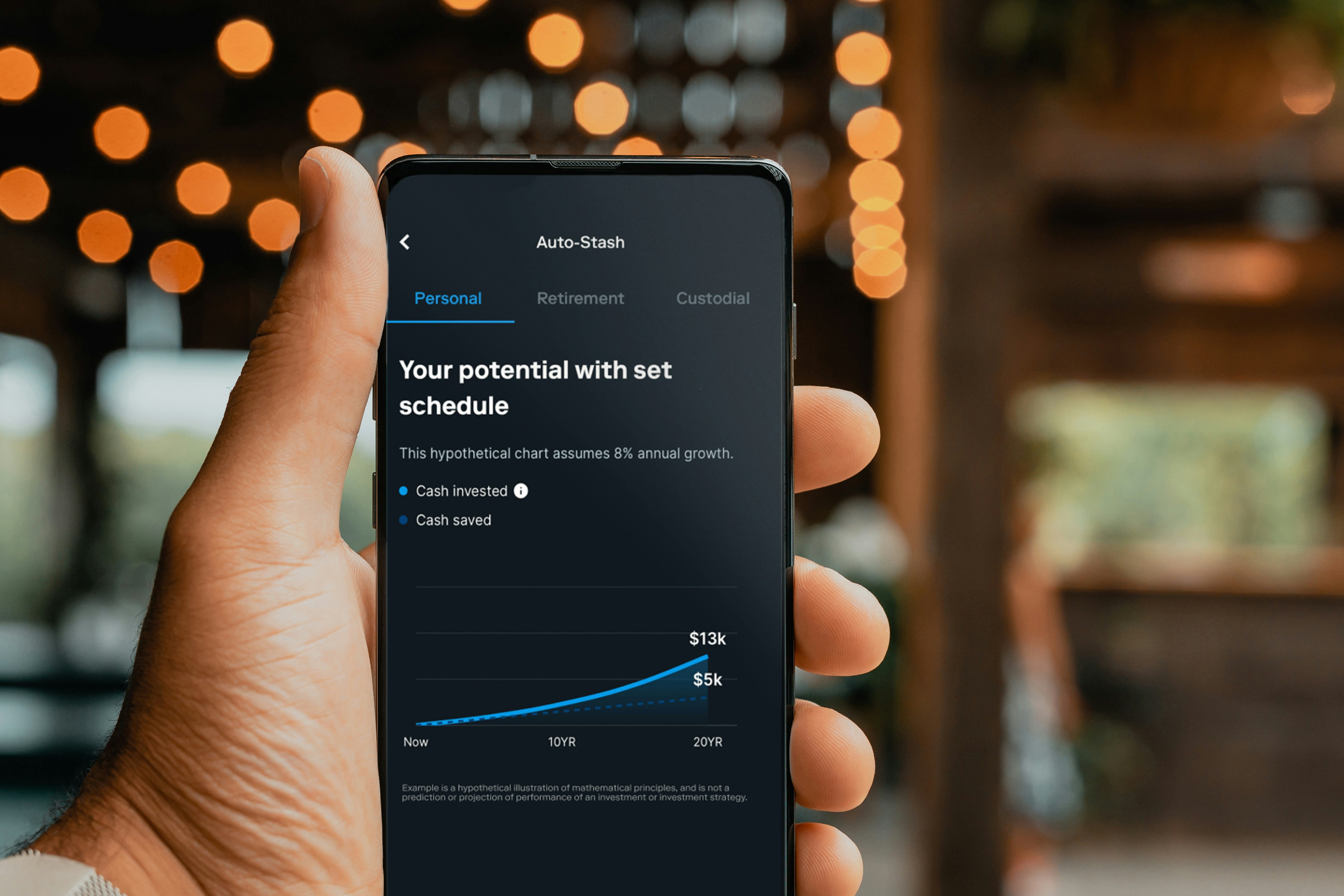Introduction to Gig Work and Its Unique Challenges
Gig work, characterized by short-term, flexible employment opportunities, has gained popularity in recent years, redefining traditional job structures. This form of work encompasses various roles, including freelance writing, rideshare driving, food delivery, and task-based opportunities on digital platforms. Gig workers often appreciate the autonomy and flexibility these jobs provide, allowing them to set their schedules and choose their assignments according to personal preferences and availability.
Despite its appeal, gig work presents a unique set of challenges that can complicate workers’ lives. One of the most pressing issues is the inconsistency of income, which often varies from week to week or month to month. Unlike traditional employment, gig workers typically do not receive a steady paycheck, leading to potential financial instability. This lack of predictable income can make budgeting and planning for future expenses quite difficult, especially for those with fixed costs such as rent or healthcare.
Furthermore, gig workers frequently find themselves without access to traditional employment benefits such as health insurance, retirement plans, or paid time off. In the event of emergencies—be it health-related issues, accidents, or unexpected financial crises—the absence of these safety nets can exacerbate the difficulties faced by individuals engaged in gig work. The responsibility for managing one’s career, including health and financial planning, falls solely on the worker, which may create additional stress in uncertain circumstances.
In navigating the gig economy, individuals must develop strategies to effectively manage these unique challenges. Understanding the nuances of gig work, and implementing proactive measures, can significantly alleviate the strain that comes with inconsistent income and the lack of benefits, ensuring long-term success in this evolving employment landscape.
Understanding the Importance of an Emergency Financial Plan
Gig workers are often subject to unpredictable work schedules and fluctuating income streams, which can lead to financial instability. Unlike traditional employees with a steady paycheck and benefits, gig workers face unique challenges that make having an emergency financial plan crucial. Without a reliable income, a sudden job loss or a decline in available gigs can jeopardize their ability to meet daily expenses, leaving them vulnerable to financial strain.
The nature of gig work can also mean that large expenses, whether due to health issues, car repairs, or unexpected emergencies, can be particularly devastating. Without an adequate financial cushion, gig workers may find themselves unable to afford necessary medical treatment, face penalties for late bill payments, or even risk falling into debt. Such challenges highlight the importance of having a well-structured emergency financial plan that provides a buffer against unexpected events.
An emergency financial plan serves as a safeguard, allowing gig workers to navigate their unique circumstances with greater confidence. By saving a portion of their income for emergencies, workers can create a financial cushion that mitigates risks associated with their unpredictable work environment. This planning can also involve assessing current expenses, creating a budget that allocates funds for savings, and even diversifying income streams to manage risks more effectively. Additionally, using various financial tools, such as accounts specifically for emergencies, can further enhance a gig worker’s financial security.
Incorporating these strategies not only helps in providing immediate relief during unforeseen circumstances but also encourages long-term financial growth and stability. As gig work continues to grow in popularity, understanding and implementing an emergency financial plan becomes increasingly essential for safeguarding against the inherent uncertainties of this employment landscape.
Assessing Your Current Financial Situation
Conducting a thorough evaluation of your financial health is crucial for gig workers looking to establish a reliable emergency plan. The unique nature of gig work often leads to irregular income streams, making it imperative to maintain a clear understanding of your financial landscape. Begin your assessment by tracking both income and expenses meticulously. Various budgeting apps and spreadsheets can assist you in categorizing your earnings and outflows, providing a comprehensive view of your financial state. Aim to record every transaction, from large payments to small expenditures, to ensure no details are overlooked.
Understanding cash flow is another fundamental aspect of this assessment. Cash flow, the net amount of cash being transferred into and out of your finances, can significantly impact your ability to withstand emergencies. You can calculate your cash flow by subtracting total expenses from total income over a specific period. A positive cash flow indicates that you are earning more than you are spending, while a negative cash flow signals the need for immediate attention. Regular monitoring of cash flow trends allows you to anticipate potential financial shortfalls and prepare accordingly.
As you evaluate your financial situation, it is essential to recognize both your strengths and weaknesses. Identifying areas where you excel, such as consistent client retention or low fixed costs, can provide a foundation upon which you can build. Conversely, acknowledging weaknesses, such as high variability in earnings or escalating expenses, is equally important. This awareness enables you to take proactive steps towards financial stability, allowing you to devise an emergency plan that is responsive to your unique circumstances. By laying this groundwork, you will be better prepared to navigate any unforeseen challenges that may arise in your gig working journey.
Setting Up an Emergency Fund: How Much and Where to Save
For gig workers, the uncertain nature of income streams makes having an emergency fund a crucial aspect of financial stability. The recommended emergency fund size varies based on individual circumstances, but a common guideline suggests saving enough to cover three to six months’ worth of living expenses. This cushion is essential for managing unexpected setbacks, such as periods of low work availability or unforeseen expenses. Evaluating your specific situation is necessary to determine the right amount; factors like monthly expenses, the stability of your gig work, and personal financial obligations should all influence your target.
To build an emergency fund steadily, start by setting clear saving goals. Create a budget that accounts for essential living costs, and identify areas where you can cut back to allocate towards savings. A practical approach is to automate your savings, making transfers to your emergency fund a regular occurrence. By setting up a direct deposit from your income or scheduling recurring transfers, you can ensure that funds are consistently directed towards your financial cushion, even during busy periods.
When considering where to save, high-yield savings accounts present an attractive option for gig workers. These accounts typically offer a better interest rate than traditional savings accounts, allowing your funds to grow more effectively while still being easily accessible in emergencies. Additionally, consider using a separate savings account specifically for your emergency fund to avoid the temptation of dipping into these reserves for non-emergency expenses. As you contribute to this vital fund, periodically reassess your progress and adjust your contributions as needed to ensure you remain on track to achieving your financial goals.
Creating a Budget that Accommodates Fluctuations in Income
For gig workers, income can be both unpredictable and inconsistent, often leading to financial strains during lean months. Creating a flexible budget is essential in mitigating these challenges and maintaining financial stability. The first step in developing such a budget is to track income and expenses meticulously. Utilize budgeting applications or simple spreadsheets to record fluctuating earnings and regular expenditures, which will provide valuable insights into spending habits.
To establish a budget that accommodates income variability, prioritize essential expenses first. Identify and categorize necessary costs such as housing, utilities, food, and transportation. Once fixed costs are covered, allocate funds for variable expenses, allowing for adjustments based on your income. During months of higher earnings, consider setting aside additional savings for months where earnings may be lower. An emergency fund is vital for gig workers, serving as a financial buffer when work is scarce.
Additionally, it is beneficial to create multiple budgeting scenarios. For instance, outline a budget plan based on your lowest expected earnings, your average income, and the highest potential income. This approach not only prepares you for lean periods but also helps you to confidently manage your spending during more lucrative months. Flexibility in budget management means you may need to make sacrifices or adjustments as your work situation changes—this could involve scaling back on discretionary spending in tougher times or increasing savings when income is healthier.
Lastly, consider adopting a method like the 50/30/20 rule, which suggests allocating 50% of income to needs, 30% to wants, and 20% to savings and debt repayment. However, this method may require more tailoring to fit the unique circumstances of gig work, emphasizing the necessity of a personalized budget that reflects your distinct financial landscape. Developing a flexible budget not only equips you to weather the ups and downs of gig work but also enhances long-term financial resilience.
Investing in Insurance: Health, Liability, and Income Protection
In the gig economy, where flexibility and independence are paramount, ensuring financial security through insurance is essential for gig workers. Health insurance offers crucial support, safeguarding individuals against unforeseen medical expenses that can arise from accidents or illnesses. It allows gig workers to receive necessary medical attention without the burden of crippling costs, thereby maintaining their ability to work and generate income. Many gig workers can explore marketplace plans or state-funded programs that cater specifically to their unique needs, ensuring they have adequate coverage.
Liability insurance is another vital layer of protection for gig workers, especially those engaged in professions where their services directly affect clients or customers. This type of insurance helps shield individuals from legal claims and lawsuits that may arise due to work-related incidents, such as property damage or personal injury. For instance, a freelance photographer might face liability issues if a client were to trip and fall at a photoshoot location. By investing in liability insurance, gig workers can protect their personal assets and ensure peace of mind while performing their duties.
Another essential form of insurance for gig workers is income protection insurance. Unlike traditional employment, where a steady paycheck is guaranteed, gig workers’ earnings can fluctuate significantly. Income protection insurance ensures that they receive a portion of their income if they are unable to work due to accidents, illnesses, or other emergencies. This coverage helps alleviate financial stress during challenging times, allowing gig workers to focus on recovery and eventual return to their work. By strategically investing in these three types of insurance, gig workers can create a robust safety net that not only safeguards their health and finances but also enhances their vocational resilience.
Building a Strong Support Network: Friends, Family, and Fellow Gig Workers
For gig workers, the nature of their employment can often lead to feelings of isolation and uncertainty, particularly in times of crisis. Therefore, establishing a robust support network comprising friends, family, and fellow gig workers is essential. This network serves not only as an emotional lifeline but also provides practical assistance during emergencies. Connections with trusted individuals can significantly alleviate stress and foster resilience in unpredictable situations.
Engaging with family and friends allows gig workers to create a strong emotional foundation. It’s beneficial for workers to communicate their unique challenges and needs with their loved ones. By doing so, they can mobilize help when necessary. For instance, a simple check-in system can be established, where family members or friends are informed about the worker’s daily plans. This ensures that someone is aware of their whereabouts and can respond if an emergency arises.
Additionally, fellow gig workers can offer invaluable insights and support. These individuals often understand the specific demands and unpredictability associated with gig work. Joining local or online communities such as freelancer forums, social media groups, and networking events can help develop these crucial relationships. Participating in discussions or shared experiences can solidify bonds and create a sense of community. It also opens avenues for collaboration, leading to informal support systems where workers can rely on each other during difficult times.
Furthermore, gig workers should consider setting up informal arrangements with their support network. For example, partners or friends can assist with pet care, childcare, or household responsibilities during critical moments. Knowing whom to contact and having reliable resources available can make all the difference. By cultivating a solid support network, gig workers can enhance their sense of security and preparedness for any challenges that may arise.
Preparing for Specific Emergencies: Health Issues, Accidents, and Economic Downturns
Gig workers often face unique challenges that can arise unexpectedly, which makes it crucial to have a comprehensive emergency plan. Among the most common emergencies are health issues, accidents, and economic downturns. Each one poses distinct risks and requires specific strategies for preparation and response.
Health crises are particularly alarming for gig workers, who often lack traditional employer-provided health insurance. It is advisable to secure personal health insurance or to consider options like telehealth services that can provide immediate assistance. Additionally, maintaining an emergency fund is vital. This fund should cover living expenses for at least three to six months, allowing workers to seek medical care without financial strain. Keeping an updated first-aid kit at hand also ensures that minor health issues can be addressed promptly.
Accidents, whether they occur while on the job or during personal time, can hinder a gig worker’s ability to earn income. To mitigate this risk, it’s important to carry sufficient liability insurance and to familiarize oneself with best safety practices relevant to specific gig jobs. For instance, if a worker operates a vehicle, understanding safe driving techniques and the appropriate measures to take after an accident is beneficial. Moreover, documenting any accidents through photos or reports can support insurance claims when necessary.
Economic downturns present another significant risk for gig workers, who may see a fluctuation in demand for their services. Creating a diversified income strategy can alleviate this pressure. Gig workers can explore various platforms and service offerings, ensuring they are not reliant on a single source of income. Additionally, being aware of government support programs, grants, or local community resources can provide essential backup during tough economic times.
By establishing preparedness strategies, gig workers can navigate emergencies more effectively, allowing them to focus on their work and maintain stability in uncertain situations.
Regularly Reviewing and Adapting Your Emergency Plan
In the dynamic landscape of gig work, it is crucial for individuals to not only develop an emergency plan but also commit to regularly reviewing and updating it. The nature of gig work, characterized by fluctuating incomes and varying workloads, necessitates that workers closely monitor their situation to ensure their emergency strategies remain effective. Personal circumstances, such as changes in family situations, health issues, or shifts in job commitments, can significantly impact one’s financial stability and overall preparedness. Thus, gig workers should schedule consistent evaluations, ideally on a quarterly or biannual basis.
During each review, gig workers should assess their current financial situation by examining income trends over the previous months. If income has decreased, it may indicate a need to tighten budgets or revise savings targets. Conversely, an increase in workload or earnings can suggest a reassessment of the amounts set aside for emergencies. Furthermore, external factors such as economic conditions or shifts in demand for specific gig services could necessitate adjustments to one’s overall strategy.
Additionally, it is beneficial to engage in scenario planning as part of this review process. By envisioning various potential emergencies—such as a sudden loss of income or unexpected medical expenses—gig workers can identify gaps in their current plan and make necessary modifications. This proactive approach ensures that their emergency strategies remain practical and responsive to their evolving circumstances.
Ultimately, by making regular reviews a part of their routine, gig workers can adapt their emergency plans to be in alignment with both their financial realities and personal situations. This ongoing diligence helps maintain a level of preparedness that is vital for navigating the uncertainties characteristic of gig work, thus reducing stress and enhancing resilience.


